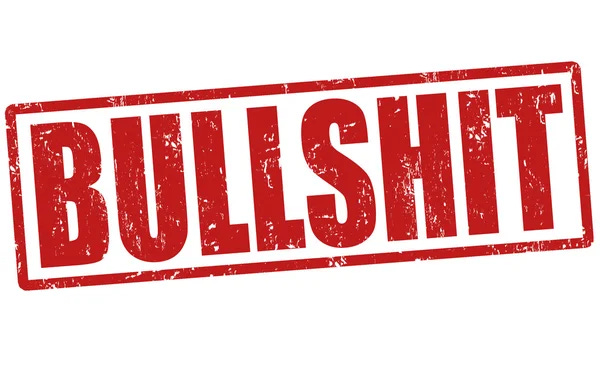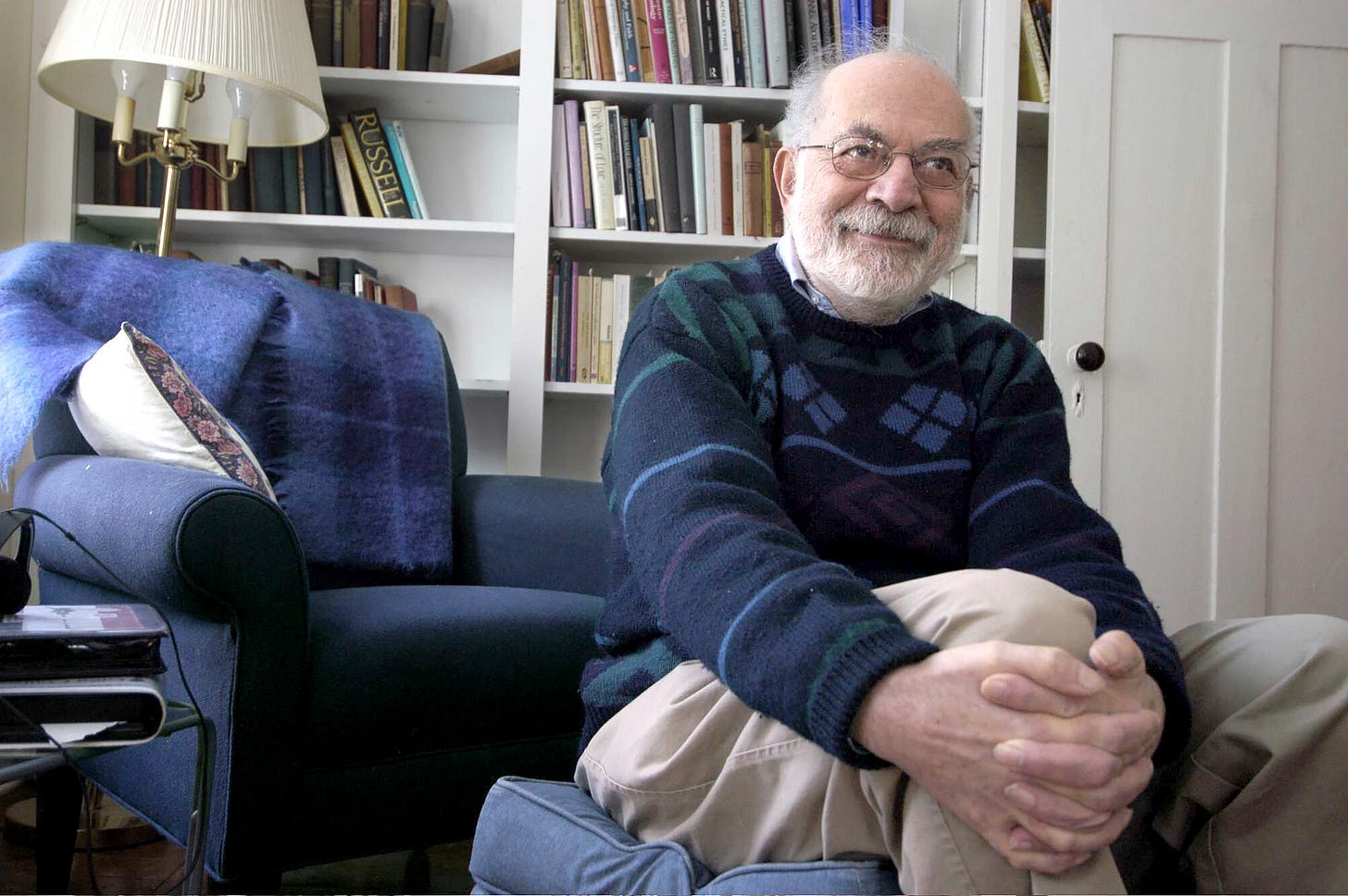Toronto, April 21, 2024
Bullshit
It’s everywhere. Public and private discourse is full of it. It seeps into every aspect of our life and being. It’s in the air like uncontrollable smoke from innumerable wildfires. Leonard Cohen sang, “There is a crack, a crack in everything/ That's how the light gets in...” Leonard, that’s not light getting in through the crack in everything. That’s bullshit.
Here is where we pay tribute to the late Professor Harry Frankfurt (see picture below), a distinguished moral philosopher (“I knew him... a fellow of infinite jest”). In 1986 Harry wrote an essay about bullshit that appeared in an obscure quarterly journal. In 2005 this essay was published by Princeton University Press as a book (On Bullshit) that may be one of the smallest in history (4 x 6 inches, 67 pages). On Bullshit may be small, but it is mighty. It spent 27 weeks on the New York Times bestseller list, including a stint as #1, and has since become a frequently cited cult classic.
On Bullshit begins: “One of the most salient features of our culture is that there is so much bullshit. Everyone knows this.” (Yes indeed, we all know this.) There are several reasons, says Frankfurt, for the ubiquity of bullshit. One is the widespread conviction that in a democracy a citizen should have an opinion about everything. Another is that a person’s opportunities to speak or write about a topic frequently exceed his knowledge of the facts. These two things have become dramatically more prevalent since Frankfurt wrote his essay in 1986. Today we live in an age of unbridled opinion, turbocharged by social media, and our opportunities to opine routinely far exceed our knowledge of the subject under consideration. The consequence is that we are drowning (choking?) in bullshit.
Frankfurt emphasizes the critical difference between bullshitting and lying. The bullshitter, Frankfurt tells us, “is not concerned with the truth-value of what she says... Her statement is grounded neither in a belief that it is true nor, as a lie must be, in a belief that it is not true. It is just this lack of connection to a concern with truth—this indifference to how things really are—that I regard as of the essence of bullshit.” Later, he writes: “Telling a lie is an act with a sharp focus.... [It] requires a degree of craftsmanship, in which the teller of the lie submits to objective constraints imposed by what he takes to be the truth. The liar is inescapably concerned with truth-values. In order to invent a lie at all, he must think he knows what is true. And in order to invent an effective lie, he must design his falsehood under the guidance of that truth.”
A bullshitter is more dangerous than a liar (although perhaps deserving of less moral opprobrium, since typically a bullshitter is careless rather than scheming). A liar can be caught out by someone looking for the truth. What a liar says can be investigated and tested. But there is no catching out a bullshitter. You can’t fact check bullshit. If a bullshitter says, e.g., “This is the most dangerous time in our country's history, and Joe Biden is leading us into oblivion,” well, you can’t engage and defeat him with analysis and truth, because analysis and truth are irrelevant. Rhetorical bullshit may be careless and stupid, but it can have enormous effect and is immune to the truth.
Gird your loins. 2024 will be the Year of Peak Public Bullshit. At least 64 countries, representing about half of the world’s population, are holding national elections. Politicians will be bullshitting on big stages like never before. And in the background will be the constant daily thrum of private bullshit. Turn your face to the wall.
Comments from readers on #62
Last week I appended to the newsletter a paragraph written by the chatbot Perplexity “in the style of Philip Slayton.” Readers were interested in this experiment. Here are two of several encouraging comments I received:
“The AI doesn't sound like you. There is no sense of a person behind it. Clearly written by a dead, rather than a dab hand.
“AI doesn’t know you. A decent piece of writing, sure, but not you at all. It was far too impersonal. No irony. No reminiscence. No wit. As Jack [Jack Rabinovitch, founder of the Giller Prize] would have said: feh.”






One wonders if the bullshitter is 'careless' or 'care less' ... at least I do.
I really enjoy reading your posts.